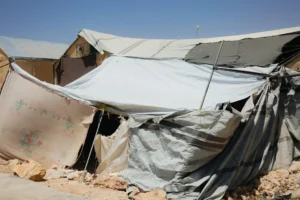In what many feared but hoped would never happen, the United States has formally joined a military offensive involving Iran. As global headlines focus on airstrikes, alliances and geopolitical maneuvers, there’s another reality quietly unfolding one far from press briefings and war rooms. It’s the reality lived by children, mothers, doctors, teachers and displaced families whose lives are now upended.
While military analysts debate strategy and power dynamics, those of us working in the humanitarian and development sectors are left asking deeper questions:
- What happens to aid delivery in conflict zones?
- How will displacement affect already strained host countries?
- What becomes of the Sustainable Development Goals in regions under fire?
The Ripple Effects We Cannot Ignore
History has taught us that no war is contained. The effects spill across borders, across economies, and across generations. The conflict between the US and Iran threatens to:
- Destabilize fragile neighboring states like Iraq, Syria and Lebanon
- Trigger new refugee crises, adding pressure on systems already stretched by existing displacements
- Derail education, healthcare and livelihoods for millions
- Close off humanitarian corridors, making it nearly impossible for aid to reach those most in need
Beyond Military Might: A Call for Moral Courage
It’s easy to get lost in the narrative of national security, global alliances, and retaliation. But real leadership lies not in how quickly one can wage war but how boldly one can prevent it.
We must ask:
- Where are the diplomatic tables, and who’s still sitting at them?
- Where are the peace builders?
- And where are the global voices calling for de-escalation not just from podiums, but in policy?
For the Development Sector: A Moment of Reckoning
This conflict presents a major test for the development and humanitarian sectors. How do we navigate political tensions while staying true to our mission to save lives, promote dignity and foster long-term resilience?
We must be louder in calling for:
- Protection of civilians under international humanitarian law
- Unhindered humanitarian access
- Increased donor support for emergency and long-term response
- Support for local NGOs and frontline responders
Final Thoughts
In times like these, we are reminded that peace is not a passive state it is a choice, a responsibility and a collective commitment.
To all working quietly behind the scenes to deliver aid, broker dialogue, or hold space for healing your work matters more than ever.
Let us keep raising our voices for peace, justice, and the preservation of humanity.



